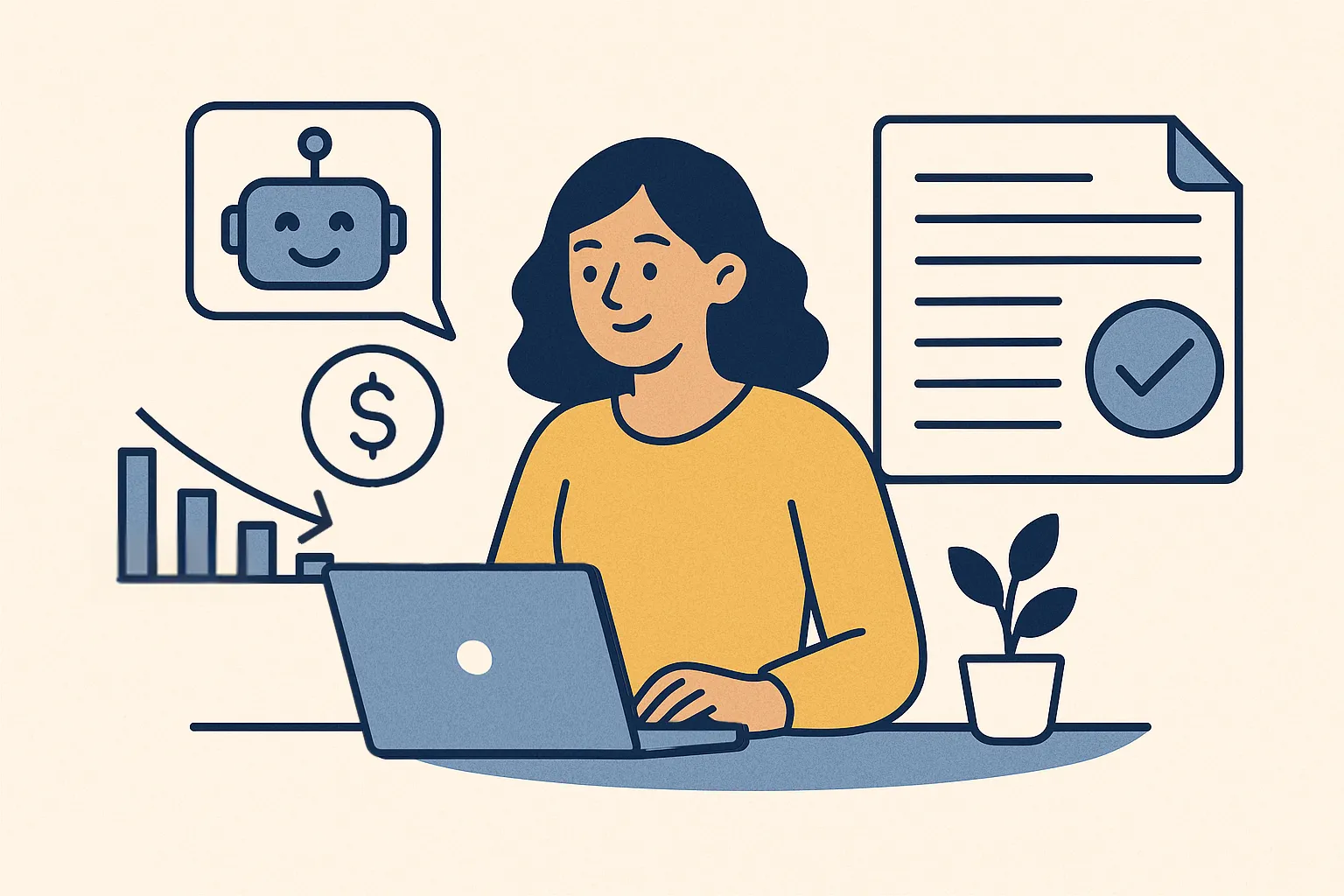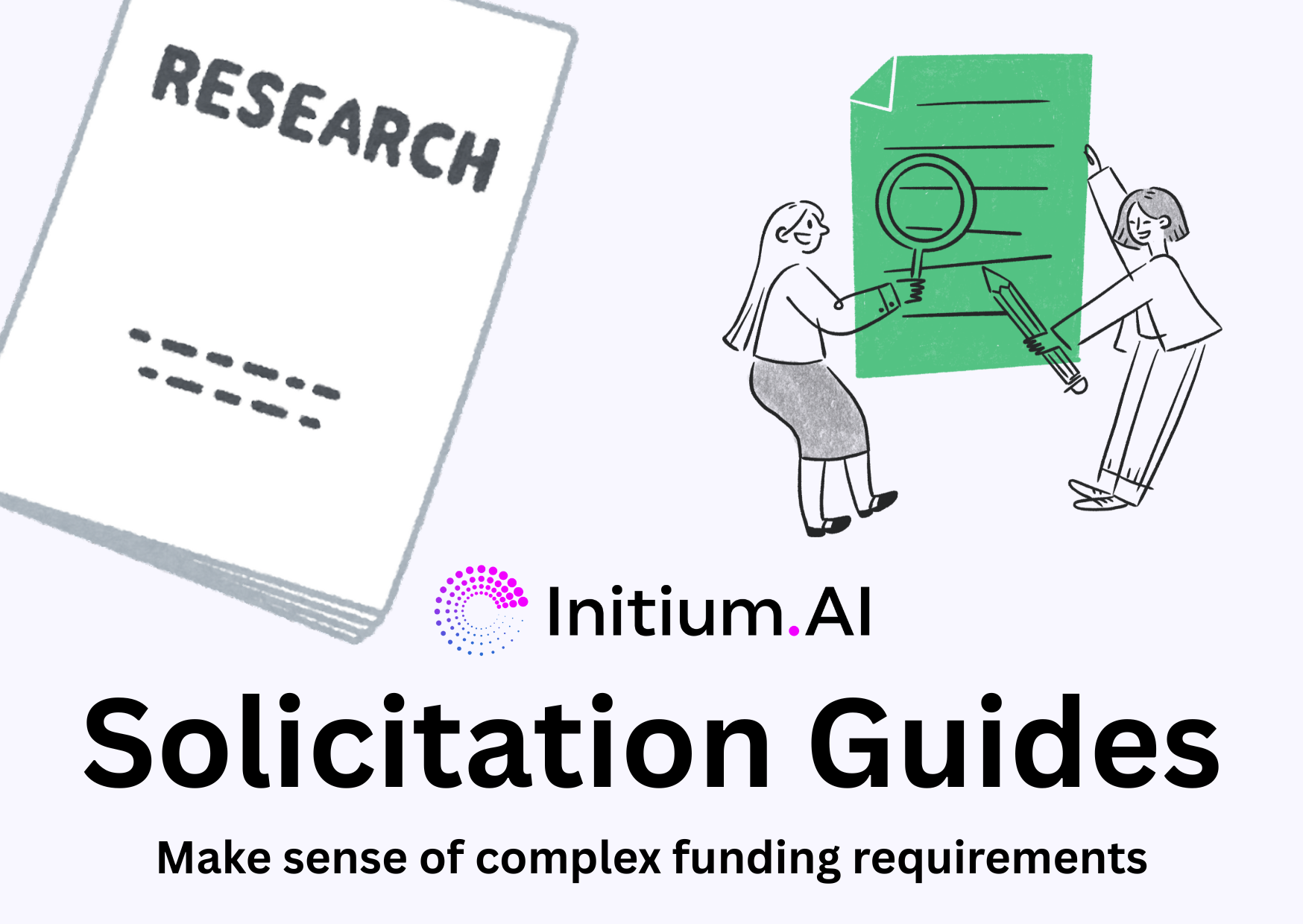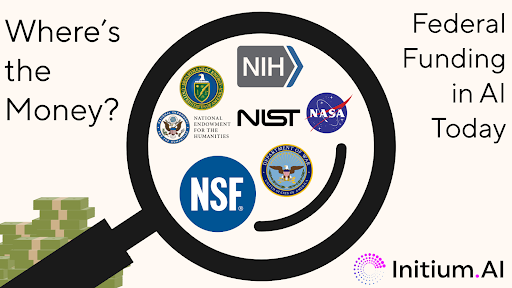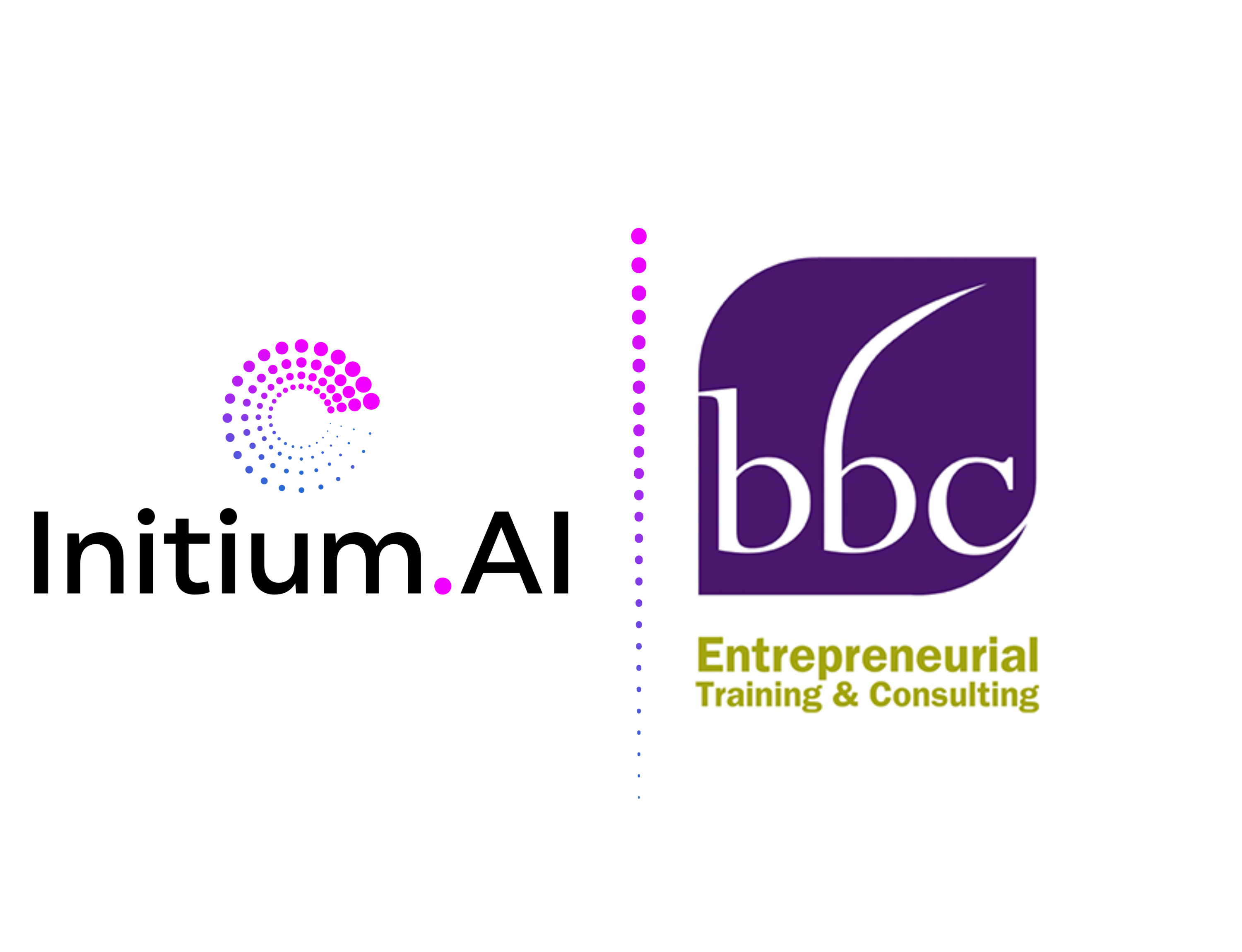
What Are The Benefits Of An AI Grant Writing Assistant?
AI tools are rapidly being integrated into everyday workflows, from drafting emails and summarizing documents to serving as co-pilots for writing code and analyzing data.
One area where AI holds significant promise, but is less often discussed, is grant writing. Faculty in academia, researchers in industry, and initiative coordinators in non-profits all share the common challenge of writing grant proposals to secure funding for their projects. As we highlighted in previous posts, grant writing consists of an entire pipeline, from ideation and identifying background materials and finding the right funding opportunities, to structuring the proposal, all the way to revising drafts and managing deadlines and documentation.
Grant writing can be both rewarding and stressful. The rewarding part lies in the vision: imagining big ideas that can shape the future, thinking through the impact your project could have, and outlining the steps to make it real. It involves identifying the hard problems and brainstorming innovative ways to solve them, or at least move closer to solutions.
But then there’s the other side of grant writing. Every funding request comes with a list of requirements, and often, a load of paperwork. Even more, grants are also highly competitive, which means proposals have to go through many revisions. This means that any grant application comes with a lot of less creative but still time-consuming work: searching for the right funding opportunities, gathering background materials, revising drafts over and over, tracking deadlines and team responsibilities, and managing numerous administrative tasks.
This is where an AI co-pilot for grant writing can help. It can streamline the tedious parts, save you time and money, help you get over psychological roadblocks, and free you up to focus on what makes grant writing enjoyable: the creativity, the ideas, and yes, the fun in grant fun-ding (pun intended).
Time and cost savings in an AI co-pilot for grant writing.
So what kind of savings can you expect from using AI to support your grant writing process? Taking as an example the key stages of grant development offered by the Initium AI platform, and assuming a (conservative) estimate of $100/hour for a principal investigator’s time, here’s a breakdown of potential savings when using an AI co-pilot for grant writing:
-
Search for relevant papers: Literature reviews are time-consuming, often requiring about 10 hours per proposal. The platform reduces this by 30% by performing a semantic search tailored to the proposal idea, saving approximately 3 hours or $300 per proposal.
-
Brainstorming support for grants: Developing a strong idea and refining it with collaborators can easily take 10 hours. The platform’s AI agents and ideation tools cut this in half, saving 5 hours or $500 per proposal.
-
Search for grant opportunities: Manually finding funding calls takes around 5 hours per project. The AI platform targeted grant search can reduce this by 80%, saving 4 hours, or $400 per proposal.
-
Grant outlining: Structuring a proposal typically takes 4 hours. With automated outline generation, that’s reduced by 75%, saving 3 hours, or $300 per proposal.
-
Proposal red-team reviewing: Getting feedback from colleagues usually takes 6 hours of expert time. The platform offers AI-driven red team reviews on demand—saving 6 hours, or $600 per proposal.
-
Document and deadline tracking: Tracking documents and due dates can take 4 hours per proposal. The AI platform can help reduce that by 50%, saving 2 hours, or $200 per proposal.
In total, that means a potential savings of $2,700 per proposal. If you submit 5 proposals a year, it could add up to $13,500 in saved time and effort.
The less measurable (but still important) benefits. Aside from the measurable time and cost savings, there are several meaningful advantages that can come from using an AI platform to assist with grant writing.
- Removal of blank page anxiety: Starting on a proposal always comes with that anxiety of getting started on a big task with a completely new document. An AI platform can help by providing structured starting points, idea prompts, and outlines, and thus reduce the pressure of starting from scratch.
- Increased idea diversity: AI agents can introduce research directions or framings that researchers might not have considered, helping PIs consider novel approaches or make unexpected connections. In fact, a recent study found that AI can lead to a higher diversity of ideas as compared to humans.
- Facilitate interdisciplinary thinking: Many funding calls value proposals that cross disciplinary boundaries, yet it’s often difficult to get input from colleagues in other fields. AI tools can help simulate disciplinary perspectives and offer early-stage interdisciplinary feedback.
- Faster iteration and feedback: With an AI platform, red-team reviews can be requested instantly, repeated as needed, and tuned for specific perspectives (social science, education, clinical, etc.) making it easier to refine a proposal over time.



